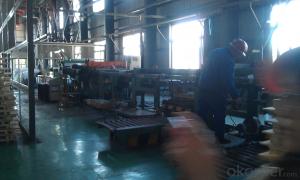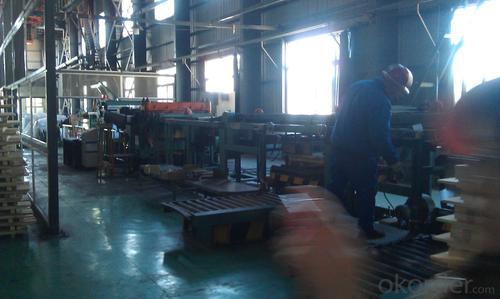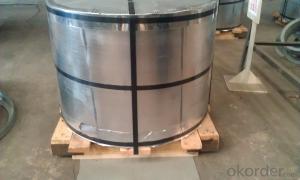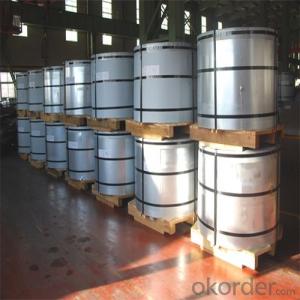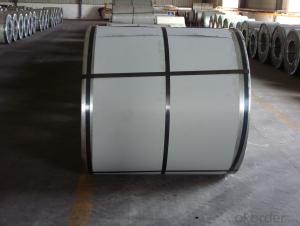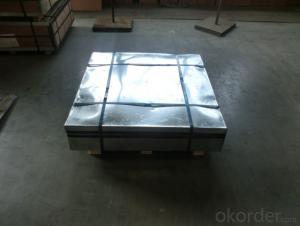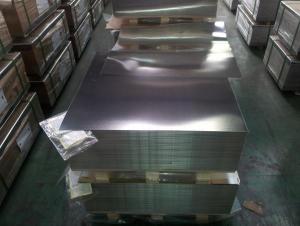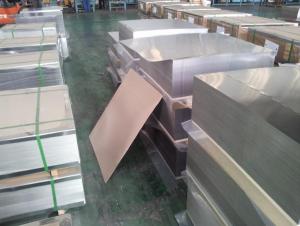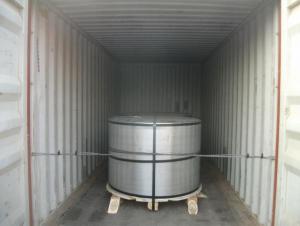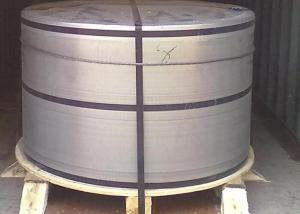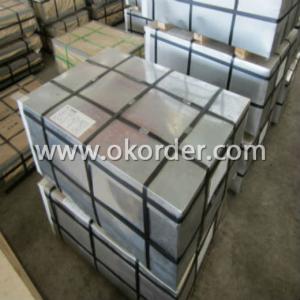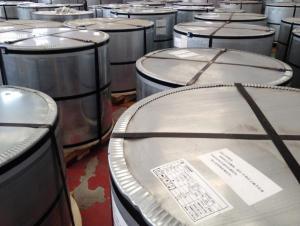Quality Tin Free Steel TFS Coils
- Loading Port:
- China Main Port
- Payment Terms:
- TT OR LC
- Min Order Qty:
- -
- Supply Capability:
- -
OKorder Service Pledge
OKorder Financial Service
You Might Also Like
Tin Free Steel (TFS)
Is also known as chromed steel, as it is obtained by coating the metal base (low-carbon steel) with an ultra-thin layer of metallic chrome and then with a chromium oxide layer.This steel product was developed to meet economic requirements, and excels tinplate in paintability, paint adhesion, and economy. It is widely used for making beverage cans and 18-liter cans. It is also used for making photographic film cases and as a protective material for optical fiber cables.
Our TFS Specification:
Standard: AISI, ASTM, BS, DIN, GB, JIS
Material: MR,SPCC
Thickness:0.15mm - 0.45mm
Width: 600mm -1150mm
Temper: T1-T5
Annealing: BA & CA
Coil Inner Diameter: 508mm
Weight: 6-10 tons/coil 1~1.7 tons/sheets bundle
Oil: DOS
Surface: Finish,bright,stone,matte,silver
Packing:
1、For sheets: plastic or waterproof paper, metallic cover and angles, steel strips,wooden pallet.
2、For Coils: plastic or waterproof paper,plastic protect plate,steel strips.
Both Prime and Second Quality Are Available!!!
- Q: Can tinplate be reused?
- Yes, tinplate can be reused.
- Q: What are the main suppliers of tinplate?
- The main suppliers of tinplate are major steel manufacturers, such as ArcelorMittal, Nippon Steel Corporation, Tata Steel, and JFE Steel Corporation.
- Q: How does tinplate contribute to the overall versatility of packaging?
- Tinplate contributes to the overall versatility of packaging by offering a wide range of benefits. Its durability, corrosion resistance, and ability to withstand high temperatures make it ideal for preserving and protecting various products. Tinplate can be easily molded into different shapes and sizes, making it suitable for diverse packaging requirements. Additionally, its metallic appearance provides an attractive and premium look to the packaging, enhancing the brand image. Overall, tinplate's versatility makes it a popular choice for a wide range of products, from food and beverages to cosmetics and electronics.
- Q: Can tinplate be reused after recycling?
- Yes, tinplate can be reused after recycling.
- Q: Advantages and disadvantages of tinplate packaging
- Because of these properties, so can provide a besides the heat, completely isolated from the closed system of environmental factors, avoid color food because of light, oxygen, moisture and deterioration, nor because of aroma through and become weak or affected by environmental pollution through the smell and taste, stability is better than that of other packaging materials of food storage. Vitamin C save the highest rate, nutrient retention is the best. International environmental management standards will be implemented soon based on ISO-14000, has the advantages of low pollution, tin recycling, resource characteristics, in the future packaging applications, will have a broader space for development.
- Q: What are the main market entry barriers for new players in the tinplate industry?
- The main market entry barriers for new players in the tinplate industry include high capital requirements for setting up manufacturing facilities, the need for advanced technology and equipment, limited access to raw materials, high competition from established players, and the necessity to comply with stringent quality standards and regulations. Additionally, building relationships with suppliers and customers, establishing a strong distribution network, and overcoming brand recognition challenges pose further barriers for new entrants in the tinplate industry.
- Q: Why tin printing after a layer of light oil
- Varnish should have the following properties:A) the color retention property is good. The solvent in the varnish can not make the ink fade and fade.(b) have sufficient hardness and firmness in order to withstand the deformation of subsequent processes.(c) match with white paint or base oil, not to corrode white paint or base oil.
- Q: How is tinplate used in the pet food industry?
- Tinplate is commonly used in the pet food industry for packaging purposes. It provides a durable and protective barrier against moisture, light, and oxygen, ensuring the quality and freshness of pet food. Tinplate cans are widely used to package wet pet food products, providing a long shelf life and easy storage for pet owners.
- Q: How is tinplate coated on both sides?
- Tinplate is coated on both sides by immersing the steel sheet in a bath of molten tin. This process, known as hot-dipping, ensures that both sides of the steel sheet are evenly coated with a layer of tin, providing protection against corrosion and enhancing its appearance.
- Q: What are the common challenges in processing tinplate?
- Some common challenges in processing tinplate include maintaining consistent thickness and coating quality, minimizing dents and scratches, ensuring proper adhesion of the tin coating, preventing corrosion or rusting, and achieving precise shaping and forming without cracking or distortion.
Send your message to us
Quality Tin Free Steel TFS Coils
- Loading Port:
- China Main Port
- Payment Terms:
- TT OR LC
- Min Order Qty:
- -
- Supply Capability:
- -
OKorder Service Pledge
OKorder Financial Service
Similar products
Hot products
Hot Searches
Related keywords
